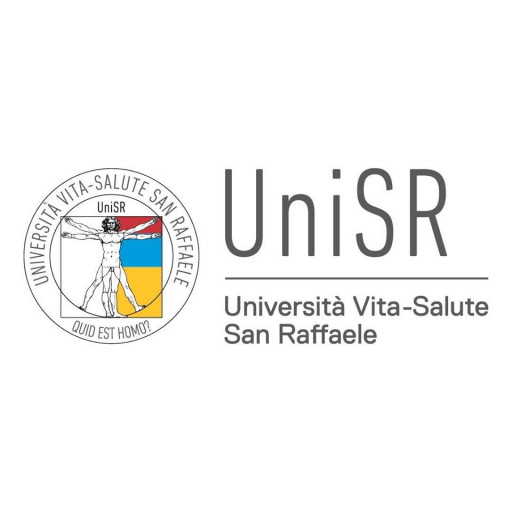Photos of university / #deakinuniversity
Psychological Science at Deakin University offers a comprehensive and forward-thinking curriculum designed to equip students with a deep understanding of human behavior and mental processes. This bachelor’s degree program combines foundational psychological theories with practical skills, preparing graduates for diverse careers in mental health, research, education, and beyond. Through a blend of lectures, practical workshops, and real-world applications, students explore core areas such as cognition, development, social psychology, abnormal psychology, and neuroscience. The program emphasizes critical thinking, ethical considerations, and evidence-based practices, ensuring that graduates are well-prepared to contribute meaningfully to the field. Students benefit from state-of-the-art facilities, experienced faculty, and opportunities for research and internships to gain hands-on experience. The program also prepares students for further postgraduate study to become registered psychologists. With a strong focus on employability and skill development, Deakin’s Psychological Science degree fosters a supportive learning environment that encourages innovation, inquiry, and professional growth. Graduates emerge with a solid foundation in psychological principles, analytical skills, and a nuanced understanding of human behavior, ready to make a positive impact in various sectors such as healthcare, education, research, and community services.
The Bachelor of Psychological Science at Deakin University offers a comprehensive and in-depth exploration of human behavior and mental processes. The program is designed to provide students with a solid foundation in psychological theory, research methods, and practical applications. Lectures and coursework cover a wide range of topics including cognitive psychology, developmental psychology, abnormal psychology, social psychology, and neuroscience, allowing students to gain a broad understanding of the diverse aspects of psychological science. Throughout the program, students develop critical thinking and analytical skills essential for evidence-based practice in psychology and allied fields.
The curriculum emphasizes the importance of research proficiency, with students engaging in hands-on projects and data analysis to understand scientific methods in psychology. Practical training is integrated into the program, providing experiential learning opportunities such as internships, placements, and community engagement projects. These experiences help students apply theoretical knowledge to real-world situations, enhancing their employability and readiness for careers in psychology, mental health, education, and related sectors.
Deakin’s Psychological Science program also prepares students for further postgraduate study or professional registration as psychologists, offering pathways into honours courses and accredited postgraduate programs. Academic staff at Deakin are experienced researchers and practitioners committed to fostering a collaborative and innovative learning environment. The program encourages inquiry, ethical practice, and lifelong learning, ensuring graduates are well-equipped to contribute positively to their communities and careers. Graduates of this program are equipped not only with a profound understanding of human behavior but also with the communication, research, and ethical skills necessary for success in various professional contexts.
The prerequisite for Entrance into the course is: Internal applicants: Bachelor Degree in Deakin University with a Licensed three-year major Order in psychology or Graduate Degree in Emotional Science or Graduate Diploma of Psychological Studies from Deakin University. External Applicants: Bachelor Degree (by having an APAC accredited three-year key sequence in psychology) or a Foundation Level inch APAC accredited Psychology class or equivalent.
The financing options for the Bachelor of Psychological Science program at Deakin University are designed to provide flexible financial support to domestic and international students. Domestic students enrolling in the program may be eligible for government-funded mode studies, such as Commonwealth Supported Places (CSP), which subsidize the tuition fees significantly, making higher education more affordable. Additionally, students can access various government scholarships, grants, and bursaries aimed at supporting students in psychology and related fields, based on academic merit or financial need. Deakin University also offers external scholarships funded by industry partners and alumni, which students can apply for during their studies to help offset costs.
International students are required to pay full tuition fees, which vary depending on the specific unit or semester. To assist international students, Deakin provides a range of scholarships, such as the Deakin Vice-Chancellor’s International Scholarship, which significantly reduces tuition fees for outstanding students. Payment plans are also available for international students who prefer to spread their tuition payments across multiple installments. Besides tuition fees, students should consider additional expenses including textbooks, study materials, professional development courses, and living costs, which contribute to the overall financial planning for completing the program.
Students are encouraged to utilize government loans where applicable; in Australia, domestic students can access the Higher Education Loan Program (HELP), which covers tuition fees allowing students to defer payment until they are earning above a certain income level. This helps reduce financial pressure during their studies. Deakin University also offers financial counseling services to help students plan their budgets, understand their financial obligations, and explore suitable funding options. Overall, the program’s financing framework aims to support students through a mix of government support, scholarships, flexible payment options, and financial advice, enabling students to focus on their academic and professional development in psychological sciences.
The Bachelor of Psychological Science at Deakin University provides students with a comprehensive foundation in the core concepts and practices of psychology. The program is designed to develop both theoretical understanding and practical skills, preparing graduates for further study or entry into the psychology profession. The curriculum covers foundational topics such as cognitive psychology, developmental psychology, social psychology, and biological psychology, giving students a broad understanding of human behavior and mental processes. Students also have opportunities to engage in research methods and statistical analysis, equipping them with essential skills for psychological investigation.
Deakin’s Psychological Science program emphasizes experiential learning through a variety of teaching methods, including labs, tutorials, case studies, and practical placements. These components allow students to apply their knowledge in real-world contexts and to develop critical thinking and problem-solving skills. The program is accredited by the Australian Psychology Accreditation Council (APAC), ensuring it meets national standards and prepares students for postgraduate psychology training or related careers.
Graduates of the program may pursue postgraduate study to become registered psychologists, or they can work in sectors such as mental health, community services, human resources, or research. The university offers state-of-the-art facilities, including dedicated psychology labs and research centers, enhancing students’ learning experiences. The program also encourages engagement with community projects and industry partnerships, fostering a practical understanding of psychological applications. With a flexible delivery mode, including on-campus and online options, Deakin’s Psychological Science degree caters to diverse student needs. Overall, this program aims to produce well-rounded graduates capable of contributing to psychological practice, research, and policy development.










